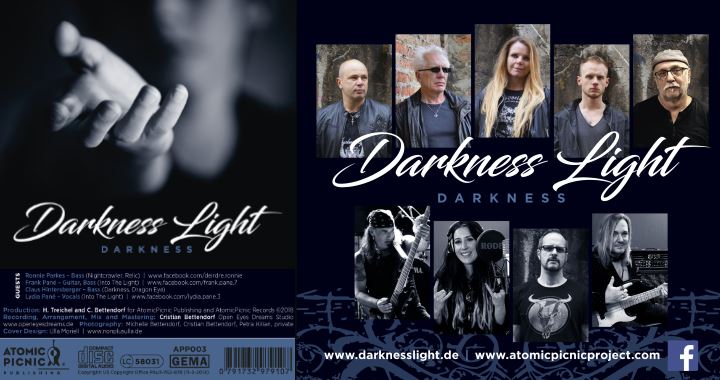


Same Old Story sets it to a backing of mangled vocoder and strings, like an urban adult contemporary take on the sound of Bon Iver’s recent 22, A Million. Then there’s Chance the Rapper’s guest verse: no sooner has he gained access to the titular penthouse than another guest racially abuses him and pushes him to his death.īy the album’s conclusion, a sense of wracked disenchantment seems to have taken over entirely. It starts out like a proud, hip-hop-styled assertion of black financial muscle, but something about the music feels uneasy: the scratchy guitar jars against the liquid bassline, the strings sound oddly tense. I Know Better is followed by Penthouse Floor, arguably the best thing here. Moreover, Darkness and Light is an album bookended by striking political statements. Among the credits lurk some fairly intriguing sounding combinations: Will Oldham working in tandem with the author of One Direction’s Best Song Ever Oldham sideman Matt Sweeney – a man who has played guitar with Current 93 and fronted math-rockers Chavez – alongside Julia Michaels and Justin Tranter, who co-wrote Justin Beiber’s Sorry and Selena Gomez’s Good for You. Meanwhile, the supporting cast of writers behind Legend and Mills has been slimmed to a mere 12, which by the standards of modern mainstream R&B albums counts as very much a skeleton staff. It took a team of 24 producers and 44 writers to bring Love in the Future to fruition, whereas Darkness and Light was almost entirely produced by one man, Blake Mills, best known for his work on Alabama Shakes’ Grammy-nominated Sound and Color – the sparse, spaced-out southern soul sound of which gets rebooted to considerable effect on the album’s title track, complete with a guest appearance from the Shakes’ lead singer Brittany Howard, her voice weaving around Legend’s. Even the credits of Darkness and Light seem to suggest a fresh sense of focus.
#DARKNESS ALBUM TV#
Certainly, he seems energised once more by current events, as evidenced by his Twitter feed in the run-up to the US election and his angry, eloquent appearance on Bill Maher’s Real Time TV show three days after it. Still, the excess of syrup felt a bit disappointing, particularly after 2010’s Wake Up!, on which Legend, energised by campaigning for Barack Obama, reworked a selection of 70s soul protest songs in the company of the Roots. In fairness, Legend has never been one of R&B’s edgier artists: in the world of American radio, they classify his style of music as urban adult contemporary, which sums things up quite neatly. That kind of universal songwriting isn’t to be sniffed at, but elsewhere on Love in the Future, there was the distinct sense that Legend was steering his career rather too directly down the middle of the road. The latter sold 12m copies and is clearly destined to soundtrack newlyweds’ first dances for the rest of eternity: in the event of a post-apocalyptic societal breakdown, when weddings take place in caves and involve eating the flesh of your mutual enemies in lieu of a cake, you suspect there’ll still be somebody in the corner banging two rocks together and wailing about loving your curves and your edges and your perfect imperfections. You do find yourself wondering if this isn’t a reference to Darkness and Light’s predecessor, 2013’s Love in the Future, the album that spawned Legend’s biggest hit to date, All of Me. “Some folks do what they’re told, but this time, baby, I won’t.”

“They say sing what you know, but I’ve sung what they want,” he offers on a track called I Know Better, over a sparse piano backdrop. J ohn Legend’s sixth studio album opens with a burst of impassioned singing that sounds remarkably like a statement of intent.


 0 kommentar(er)
0 kommentar(er)
